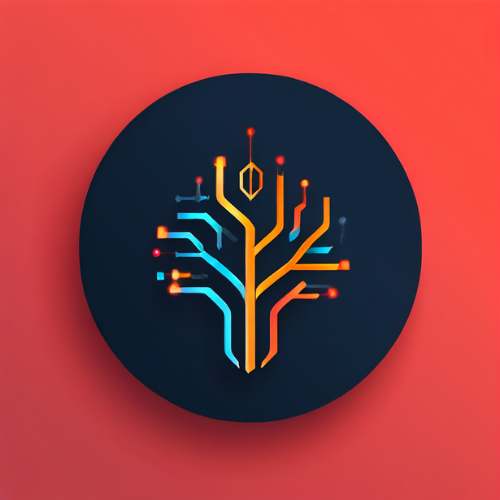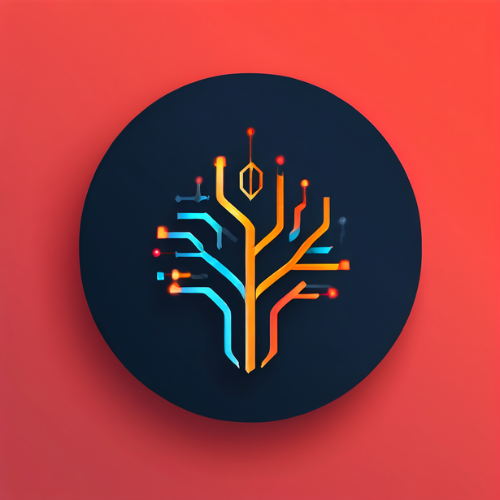Introduction
In the rapidly evolving landscape of artificial intelligence (AI), the rise of powerful language models and AI solutions developed by tech giants has raised concerns about the widening gap in access to information and resources. As we navigate this complex terrain, it is crucial to understand the role of networks, data control, and the potential of AI agents acting as our digital replicas. In this post, we will explore these topics and discuss strategies to ensure that AI technology serves the best interests of society as a whole.
The Limitations of Corporate Networks
Corporate networks, while offering efficient solutions within their respective domains, often create gated communities that restrict access and perpetuate inequality. The limited interoperability of these networks hinders their overall effectiveness and scope. As AI continues to advance, it is essential to develop systems capable of learning and executing various intellectual tasks while establishing reliable trust systems.
The Potential of AI Agents as Digital Replicas

AI agents, acting as our digital replicas, have the potential to simplify our daily tasks and provide us with more time for meaningful experiences. These agents should efficiently navigate the vast digital landscape, sifting through information to provide us with the most relevant and reliable data. They should be proficient in handling basic tasks such as email management, bill payments, and calendar organization, allowing individuals to fully immerse themselves in the physical world while their digital existence is being managed.
Creating AI Agents: The Data Dilemma
To create highly effective AI agents that serve as our digital replicas, we must be willing to relinquish our data. However, entrusting our personal information to tech giants raises valid concerns. These companies have created walled gardens where transparency is limited, interoperability is restricted, and users are often treated as products. When testing AI assistants like Microsoft Copilot or Google Gemini, it becomes evident that while these tools are powerful, they are confined to their specific environments, reminiscent of the limitations of corporate networks discussed in my previous post on Corporate, Protocol and Blockchain networks (https://marioromerox.com/decoding-networks-the-key-to-understanding-blockchains).
The Promise of Blockchain for AI Agents
Blockchain networks offer a compelling solution to the challenges posed by corporate networks in the realm of AI. By leveraging the decentralized, transparent, and interoperable nature of blockchain technology, we can create an ecosystem where AI agents can thrive without compromising user privacy or autonomy. Blockchain networks provide a trustless environment where users can maintain control over their data while benefiting from the capabilities of AI agents.
One exciting possibility is the ability for AI agents to perform tasks and even earn income on behalf of their human counterparts. Imagine a future where your digital replica can engage in freelance work, participate in online markets, or contribute to decentralized projects, all while ensuring that the rewards are fairly distributed to you. Blockchain technology, with its smart contract functionality and decentralized payment systems, is well-suited to facilitate this new era of AI-driven productivity.
Risks and Concerns in the AI Landscape
While AI holds immense potential, it also carries significant risks, including algorithmic bias, privacy concerns, and the concentration of power among a few tech giants. Algorithmic bias, stemming from the data used to train AI systems, can have detrimental effects on equality and democracy. The generation of comprehensive behavioral profiles and the potential re-identification of anonymized data raise legitimate concerns regarding privacy and individual autonomy. Transparency in AI decision-making and the potential amplification of social biases are also significant issues that need to be addressed.
Strategies for Safeguarding Data and Ensuring Ethical AI Development
Trusted Independent Organizations (Data Banks)
One strategy is to rely on trusted, independent organizations to securely store our data. These organizations must be independently vetted and monitored to ensure that the data used in creating AI replicas is protected, not manipulated, and used in our best interest. Transparency and accountability are key to maintaining public trust while respecting individual privacy and security.
Blockchain Networks
Decentralized systems, such as blockchain networks, offer robust data protection and prevent any single organization from having control over personal data. The trustless, immutable, and decentralized nature of blockchain technology provides an ideal ecosystem for constructing AI replicas. Initiatives like the Artificial Superintelligence Alliance, formed by Fetch.ai, SingularityNET, and Ocean Protocol, aim to establish an inclusive and democratic AI ecosystem that redistributes influence within the AI community.
Let's dive a bit deeper
Fetch.ai, an open platform for building AI apps and services, showcases the power of AI agents through their DeltaV product. DeltaV allows users to access multiple services from a single prompt, demonstrating how AI agents can efficiently navigate the digital landscape and provide relevant information and assistance.
Fetch.ai addresses these concerns by leveraging blockchain technology to create a decentralized, transparent, and interoperable ecosystem for AI agents. By using blockchain networks, Fetch.ai enables users to maintain control over their data while benefiting from the capabilities of AI agents. Furthermore, Fetch.ai's integration with other platforms and services, such as Datarella, Robert Bosch GmbH, peaq, and Ocean Protocol, demonstrates the potential for collaboration and shared knowledge in the development of AI agents. These partnerships highlight the importance of combining innovative technologies, such as Web3, AI, and open-source solutions to create industrial applications that generate added value.
Conclusion: A Call to Action for a Human-Centric AI Future

As we embark on this exhilarating journey into the age of artificial intelligence, we find ourselves at a pivotal moment in history. The rise of AI agents as our digital replicas holds immense promise, offering us the opportunity to reclaim our time, focus on what truly matters, and unlock our full potential. However, we must resist falling prey to the allure of efficiency and convenience. The road ahead is full of obstacles, and it is up to us—both as a society and as individuals—to travel this unexplored territory with discernment, wisdom, and a steadfast dedication to our common ideals.
The corporate networks that dominate our digital landscape today have created walled gardens that stifle innovation, perpetuate inequality, and erode our privacy. We must resist the temptation to surrender our data and our autonomy to these monolithic entities, for in doing so, we risk losing the very essence of what makes us human. Instead, let us embrace the power of decentralization, harnessing the potential of blockchain networks to create an AI ecosystem that is transparent, accountable, and truly serves the interests of all.
But as we forge ahead, we must remain ever vigilant. The risks posed by AI, from algorithmic bias to the erosion of privacy, are all too real. We must confront these challenges head-on, working tirelessly to ensure that the AI systems we create reflect our values and promote the common good. This will require collaboration on an unprecedented scale, bringing together the brightest minds from across disciplines to develop innovative solutions that prioritize human well-being and autonomy.
In the end, a few number of tech behemoths or government representatives will not determine the course of AI. We will all work together to create this future through our decisions, deeds, and shared vision. So let us seize this moment, and let us work tirelessly to build an AI ecosystem that empowers individuals, fosters innovation, and unlocks the full potential of every human being.
The road ahead may be uncertain, but one thing is clear: the destiny of AI lies in our hands. It is up to us to shape this powerful technology into a force for good, to create a future where AI serves as a tool for liberation rather than oppression. So let us rise to the challenge, let us dream big, and let us work together to build a world where every individual can thrive in the age of AI.
Together, we can create an AI future that is not just more efficient or convenient, but one that is fundamentally more human. A future where our digital replicas serve as extensions of ourselves, empowering us to live fuller, more meaningful lives. A future where the benefits of AI are distributed equitably, where no one is left behind, and where the power of technology is harnessed for the greater good.
Moving forward, let us do so with bravery, empathy, and unwavering dedication to our common humanity. Because ultimately, human creativity, inventiveness, and resiliency possess greater potential for AI than do algorithms or hardware. By working together, we can build an AI future that lives up to our greatest expectations and leaves a legacy of promise and opportunity for future generations.
Resources used to write this post
“Fetch.ai, Singularitynet and Ocean Protocol Unite to Create ...” Fetch.ai Open Platform Provides Tools to Build Innovative AI Apps and Services. Join the Community and Unlock the AI Potential of Your Products., fetch.ai/blog/fetch-ai-singularity-net-and-ocean-protocol-unite-to-create-the-superintelligence-alliance. Accessed 25 Apr. 2024.
“Fetch.ai, SingularityNET and Ocean Protocol Want To ...” BitKE, 1 Apr. 2024, bitcoinke.io/2024/04/fetch-ai-singularitynet-and-ocean-protocol-establish-the-worlds-largest-decentralized-ai-ecosystem.
Lyric, Kaplan. "Artificial intelligence: Risks to privacy and democracy. Artificial Intelligence: Risks to Privacy and Democracy. 21, 2019, heinonline.org/hol-cgi-bin/get_pdf.cgi?handle=hein.journals/yjolt21§ion=4.
Lyric, Kaplan. "Artificial intelligence: Risks to privacy and democracy. Yale JL Tech. 21, 2019, heinonline.org/hol-cgi-bin/get_pdf.cgi?handle=hein.journals/yjolt21§ion=4.
Sandeep, Tagde, et al. Blockchain and Artificial Intelligence Technology in e-Health. Environmental Science and Pollution Research 28, 2021, link.springer.com/article/10.1007/s11356-021-16223-0.
Sandeep, Tagde, et al. Blockchain and Artificial Intelligence Technology in eHealth. Environmental Science and Pollution Research 28, 2021, link.springer.com/article/10.1007/s11356-021-16223-0.
Team, Ocean Protocol. “Fetch.ai, Ocean Protocol and SingularityNET Unite to Create Artificial Superintelligence Alliance.” Medium, 1 Apr. 2024, blog.oceanprotocol.com/fetch-ai-ocean-protocol-and-singularitynet-unite-to-create-artificial-superintelligence-alliance-0768d608ecfa.
Domingos, P. (2015, September 22). The Master Algorithm. Penguin UK. http://books.google.ie/books?id=pjRkCQAAQBAJ&printsec=frontcover&dq=Master+Alorithm+by+Pedro+Domingos&hl=&cd=1&source=gbs_api




